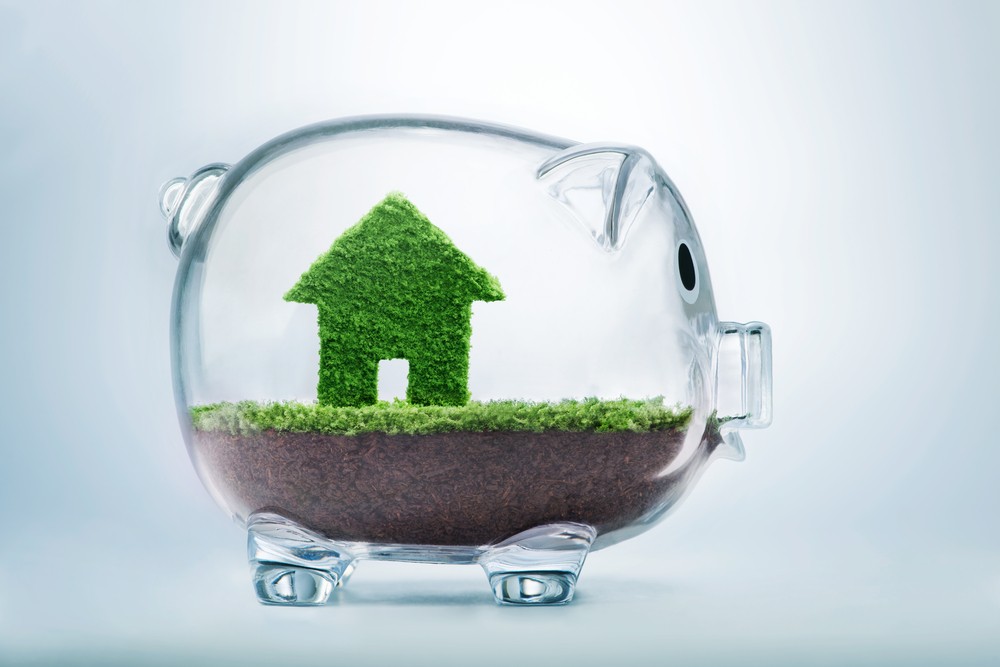It’s amazing isn’t it, how quickly a month can pass us by! With our busy lifestyles it’s easy to get caught up in the daily grind much like that movie ‘Groundhog Day’ where Bill Murray finds himself living the same day over and over and over again.
Save the Environment While Saving Money
Saving money whilst saving the environment! Plus your FREE interactive energy cost guide!
It’s amazing isn’t it, how quickly a month can pass us by! With our busy lifestyles it’s easy to get caught up in the daily grind much like that movie ‘Groundhog Day’ where Bill Murray finds himself living the same day over and over and over again.
That’s why it’s so important to make sure you do at least one thing differently each and every month and if you want to save money, it’s the small everyday things you do that can really make a difference. This month why not make it a double win and not only save money but in the process, save the environment too!
There are many everyday things you can do to not only reduce your energy bills, but reduce carbon emissions at the same time. Take a few minutes to read through the tips below and make sure when you get to the end you click through to AGL’s appliance energy cost guide to find out how much your everyday appliances are really costing you!
Clothes Dryer :
- Use clothes lines or clothes airers wherever possible.
- If possible, have the clothes dryer vented to outside to release moist air. Alternatively, keep windows or doors open to improve ventilation when the appliance is in use.
- Set the clothes dryer to warm rather than hot. Clothes take longer to dry, but you will use less energy, therefore costing less.
- Clean the filter before every use.
- Never place dripping-wet clothes into the clothes dryer. Ensure that excess water is removed or that clothes have been spun well in the washing machine before placing them in the drier to reduce drying time and thus cost.
Washing Machine:
- Always use cold water to wash clothes – it has been scientifically proven to be as effective, but costs significantly less.
- Change the wash cycle according to the type of load to reduce cost. Use the shortest washing cycle where possible.
- Adjust the water level according to the size of the load.
Lighting :
- Compact fluorescent lights cost less to run and last 10 times longer. The initial purchase cost is higher, but they are more economical in rooms where you use the lights a lot (such as front verandas, hallways and family rooms). They can be fitted into conventional light sockets (bayonet or screw fittings) and are available in a range of colours, shapes and wattages.
- Always turn off lights when there’s nobody in the room.
- Use the lowest wattage needed to light the room, e.g. hallways need adequate light, not bright light.
- Dusty or dirty lights can dim your lights by up to half, so regularly clean light globes, fittings, reflectors and lampshades.
- Turn off halogen light globes when not in use.
Heating :
- Close doors to rooms that don’t require heating. You can save up to 75% of total heat loss by closing doors to colder rooms, like bathrooms, laundries and kitchens.
- In the cooler months, set your thermostat between 18 °C and 20 °C. Every 1°C higher could cost you between 10 and 15% more.
- Let the sunshine in. On sunny winter days, warm the house by pulling back the curtains.
- Seal gaps around doors with weather stripping or door ‘snakes’ to stop cold air flowing in. Don’t forget unused fireplaces!
- Dust your heater and service the air filters regularly. Turn off heaters in your living areas before going to bed. They will stay warm for several hours if they’re insulated.
- What about an extra blanket rather than an electric blanket? And dressing more snugly around the house can also help.
Dishwasher :
- Run dishwashers on hot water rather than cold water unless you have a small electric hot water unit. Using cold water increases the cost.
- Change the wash cycle according to the type of load to reduce costs. Use the shortest washing cycle where possible.
- Wait until the dishwasher is fully loaded before you switch it on, reducing the number of times you use it.
Microwave :
- Use your microwave whenever you can, because it uses less than half the energy of an oven. Microwaves can cook three times faster, while using 70% less electricity.
- Stir or turn food over regularly to cook food evenly and speed up cooking time.
Cooking :
- Keep oven door shut when cooking. Every time it’s opened, more energy is used.
- Thaw foods completely before cooking, to save cooking time and energy.
- Keep pot lids on and simmer gently, rather than boiling rapidly.
Home Insulation :
- According to the Sustainable Energy Authority of Victoria, insulating your home is the most effective way of improving the energy efficiency of your home.
- Insulating a home can save 45-55% of heating and cooling energy.
AGL Appliance Energy Cost Guide
Click here to access the energy cost guide

How does this work?
The AGL Appliance Energy Cost Guide allows you to locate appliances that you use (or are intending to purchase) and understand approximately how much they cost you to run.
Whilst many factors influence the real running costs, the figures you see here will give you a good understanding of the energy cost of your appliances. When selecting new appliances, you will also be able to understand which types may help you keep your costs down.
Electricity Rates (inc. GST) : 19.723 c/kWh
Happy Saving!
Source: AGL


